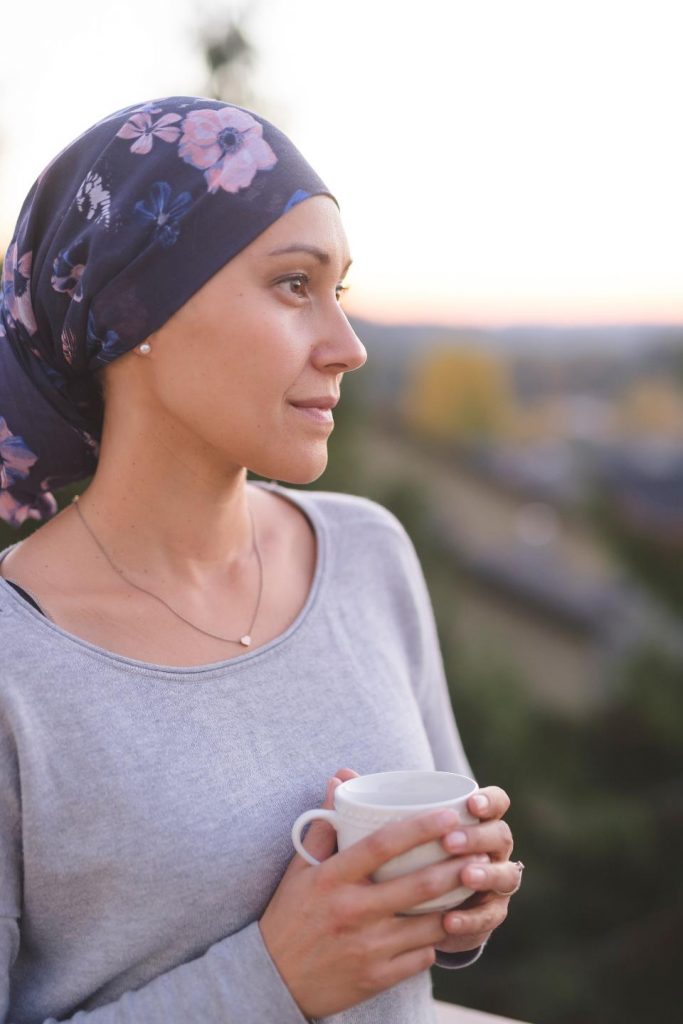Collateral Damage Of Covid-19: More Than 200 International Cancer Trials Suspended
As we continue to treat and discharge patients with Covid-19 from hospitals throughout the US, we are acutely aware of patients avoiding the ER for fear of contracting Covid-19.
Messaging that reflects not only the safety but necessity of seeking care in the setting of life threatening conditions is vitally important to assure the health of the American people.
Deaths from heart attacks, strokes and sepsis, reflected in data measuring excess mortality—deaths beyond what we would have solely expected from Covid-19—remind us of the “other” casualties of the pandemic.
But other types of casualties from the pandemic include cancer patients, many of whom have not been able to receive necessary surgeries or treatment during the height of the lockdown, along with those who may have not been able to be enrolled in trials using investigational approaches and novel therapies.
“The battle against cancer is formidable even in normal circumstances; Covid-19 adds to this battle by not only predisposing this population to higher morbidity and mortality but has also forced the majority of the cancer institutions in the U.S. to shut down the clinical trials in cancer patients to deal with the present crisis”, said Wasif M. Saif, M.D., Deputy Physician-in-Chief and Medical Director, Northwell Health Cancer Institute, Lake Success, New York,
“I call the Covid-19 pandemic and cancer situation a “two-front war“. The first fight is with cancer — a disease that claims 600,000 lives each year in the U.S. Data from published studies during this pandemic clearly suggests cancer was associated with an increased risk of death of patients three times higher than those without cancer, and also increased intensive care unit admission and ventilation support,” added Saif.
With these issues in mind, there is no doubt that efforts to conduct medical research in just about every discipline has been significantly affected by the pandemic. Certainly, oncology is one area where ongoing research is vital to impacting patient mortality and decisions regarding cutting edge treatments.

In fact, based on findings of a recent study, more than 200 international cancer trials have been suspended as a result of disruption of normal clinical operations globally from Covid-19. The effects were most apparent in the US and in Europe, but also in Asia to some degree, based on the results of the study. The effects of this disruption will likely be incalculable in terms of progress and mortality data that we may see both in the near and long term.
Researchers analyzed data from ClinicalTrials.gov looking specifically at patient enrollment during the critical early months of the pandemic. They used a survey to understand the effects on 36 investigators (between March 23 to April 3, 2020) conducting cancer- related clinical trials at various institutions across multiple countries. A separate analysis by a health care data analytics firm, IQVIA, also looked at the factors affecting more than 200 ongoing clinical trials.
Results of the survey demonstrated that 60% of institutions in the US and 86% in Europe are enrolling now enrolling patients at a reduced rate compared to prior to the pandemic. The main factors affecting enrollment, based on survey data, included lack of access to patients themselves during the lockdown, investigator concern related to patient safety, lack of research staff, along with mode of cancer treatment and type of cancer.
At the time of the survey in March to early April of 2020, it was noted that patient enrollment in clinical trials had precipitously declined, particularly in the US and in Europe. In fact, only 20% of institutions in the US and 14 % in Europe resumed enrollment at their pre-pandemic rate. Meanwhile, about 60% of the enrollments in Asia had not changed.
If you look at institutions that continued to conduct trials with reduced enrollment rates, 23% cited patient care and type of cancer therapy encompassing the route of administration, as two of the main considerations adversely affecting patient enrollment. Additional concerns included lack of research or support staff, resources, and well as patient safety. Aside from this, risk vs. benefit was the primary consideration for patients being enrolled in ongoing trials.
Similar trends were also observed in the case of initiating new trials with patient care, type of cancer therapy, and route of administration being the main considerations. Researchers also expressed concern about therapy that required IV administration compared with oral approaches, since oral medications could be taken in the home setting.
In evaluating regulatory and operational challenges related to Covid-19 patients overwhelming healthcare systems, nearly 60% of researchers said that Covid-19 had moderate or high impact leading to delayed or cancelled patient visits, and close to 80% of researchers believed that such protocol irregularities would lead to incomplete records and research.
“The biggest delayed consequence of the COVID-19 pandemic would probably be in delaying cancer drug development, with its own consequences both for the cancer patients as well as for the pharmaceutical industry,” said Saif.
Beyond this, financial considerations also come into play in any calculation regarding the toll of the pandemic on cancer clinical trials.
“Sites have to bear the brunt of an ever-changing clinical landscape while tackling potential loss of revenue,” explained Saif. “In clinical research, a major portion of site revenue comes from industry sponsored trials. Payments to sites are based on enrollment, patient visits completed and timely data entry. In many sites, enrollment to studies had to be limited to ensure patient and staff safety. Concern for safety has also led to the cancellation of many non-essential study procedures. Less recruitment and more cancellations mean less revenue sites will receive.”
The use of alternative technologies to reduce the need for in-person visits for research and evaluation was crucial during the pandemic. Such approaches included telemedicine, but also virtual monitoring of data and study documentation, as well as remote electronic health record access for those conducting patient evaluation and follow-up. Directly shipping drugs to patients as well as avoidance of specific immunosuppressive regimens also constituted ways that researchers altered their approaches to conducting research.
“The Covid-19 pandemic gave all of us a crash course of telehealth and provided a new tool to interact and manage cancer patients,” offered Saif. “But it is important to remember that this is a population who was previously reluctant to digital communication—even in a blizzard, I remember having 80% patients showing up.”
Saif further said that “Telehealth can help us to interview but misses the human touch, and most importantly physical examination which in some cases is crucial including measurement of a tumor mass or others.”
On the upside, Saif stressed that” it [telehealth] can offer a platform to manage immunocompromised patients and carries the potential to see second-opinions in a quick manner allowing us to save resources at the same time.”
Data from ClinicalTrials.gov noted that more than 200 interventional oncology trials were suspended during the months of March and April—62 suspended during March and 139 suspended during April. Looking at the breakdown of suspended trials, 29 were phase 1, 72 phase II, 11 phase III, with the remainder classified as “other”.
Saif sums it up simply: “ The Covid-19 pandemic has changed the way we treat cancer and perform cancer trials; first and foremost, we need to carve out a long-term plan to care for our patients in anticipation of another wave of COVID-19 now or in Fall.”
“We not only need to resume the clinical research but gain acceleration urgently to move on with development of cancer drugs simultaneously with treatments for Covid-19,” he offered. “But don’t forget the human factor, “the fear” by the patients and their families to return to cancer centers – we need to reassure that we are a safe facility. This pandemic has forced us to culminate a rationalization basis for cancer services, both diagnostic and therapeutic. Not only institutions were required to develop guidelines under multidisciplinary teams, but many national and governmental organizations also laid out guidelines about who and how to treat.”
“This pandemic not only stretched health systems in terms of constraints related to workforce of health care providers due to their own illness or family members but also threatened to exhaust the assets, including capacity of hospital beds, ventilators, PPE introduced by the financial impact of COVID-19. It is hoped that the effect of this rationalization in cancer care will last long and allow us to analyze and fix the issues of health disparity, such as access to cancer services, socioeconomic and ethnic differences,” concluded Saif.
Going forward, it will be vital to mitigate the impact of future shutdowns on ongoing cancer trials, not to mention basic cancer care and surgeries. This will help to guide us in the future with a clear plan when the next pandemic strikes.
“The current paradigm for clinical trials in the U.S. requires both patient and researcher to be in direct contact with one another—a patient enrolled in a clinical trial receives the cancer care prescribed by the trial at the hospital the researcher is at,” said Miriam A. Knoll, M.D., DABR, a radiation oncologist, and a Forbes healthcare contributor, “With the advent of expanded telehealth coverage across the U.S. due to COVID-19, researchers have an unprecedented opportunity to expand access to clinical trials.”
“The next major hurdle will be how quick the regulatory oversight of trials can be adapted to these new researcher-volunteer relationships, to ensure optimal care, safety, and research integrity,” Knoll added.
Follow me on Twitter. Check out my website.
Source: Forbes By Robert Glatter, MD
I am an emergency physician on staff at Lenox Hill Hospital in New York City, where I have practiced for the past 15 years. I also serve as an adviser and editor to Medscape Emergency Medicine, an educational portal for physicians, and an affiliate of WebMD. My other time is spent with my private house call practice, DR 911, providing medical care to both travelers and residents in Manhattan. I have a keen interest in medical technology and public health education
Support families fighting financial toxicity of cancer – here.
Featured image credit: Gustavo Fring.
